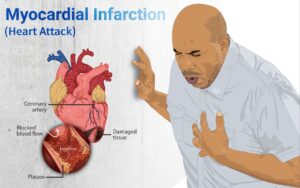Hirsutism is a condition in women and people assigned female at birth (AFAB) in which you have a lot of hair growing in places where it usually does just for men.
It can also affect men and people assigned male at birth (AMAB), but the condition is often harder to identify. In men, hirsutism may look like typical hair growth.
The hair is often dark and coarse instead of the light, fine “peach fuzz” that covers most of the body.
The upper lip, chin, chest (including the area surrounding the nipples), tops of the shoulders, and lower belly are places of the female body where males commonly have body hair. The term “hirsutism” refers to this condition.
Extra hair that is typically coarse and dark (as opposed to the fine hair that some women have on their upper lip, chin, breasts, and abdomen). The hairs also grow longer than usual; as a result, the hairs on the top lip may eventually reach a length of 1 cm rather than remaining short, fine, and fair.
high hormone sensitivity is a cause of too much hair.
Women frequently worry that having hair indicates they have masculine hormones and are therefore not fully feminine. In reality, testosterone, the “male” hormone, circulates in trace amounts in the bodies of all women. Its main producers are the adrenal glands, which are found above the kidneys.
If the skin is especially susceptible to testosterone, it increases hair growth on the upper lip, chin, chest, and lower belly. The problem is that, despite having the right hormone levels, the skin reacts to testosterone too strongly. Women with this problem develop more body hair from puberty until menopause, but after menopause, body hair production gradually declines, with the exception of facial hair, which keeps growing.
ovarian polycyst syndrome
Polycystic ovarian syndrome affects certain hairy women. The typical causes of this condition are ovarian cysts and an imbalance between the pituitary and adrenal glands. As a result, male hormone production rises. In the late teens or early 20s, it generally manifests with other symptoms in addition to an abundance of hair.
Polycystic ovarian syndrome occasionally runs in families. It is normally diagnosed with blood testing and an ultrasound of the ovaries. One option for treatment is medication. The hirsutism (hairiness) of obese women with polycystic ovarian syndrome gets better as they lose weight.










